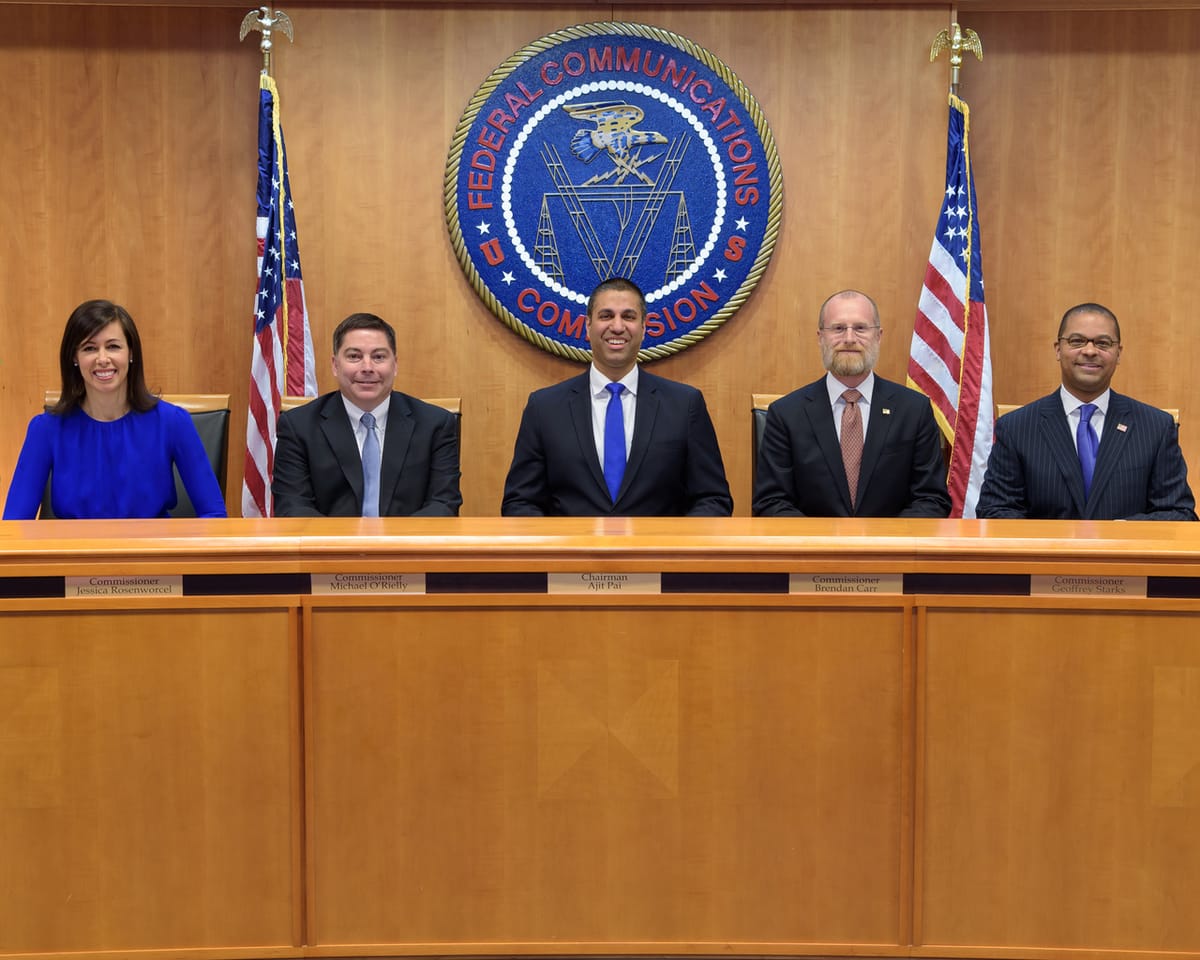The FCC and Relinquished Authority Over Social Media, Amazon’s Worker Surveillance, White Spaces Database
Several trade associations last week notified the Federal Communications Commission that adhering to President Donald Trump’s executive crackdown on social media bias would reverse the agency’s decision to remove net neutrality regulations. In a comment filed on Wednesday, New America told the FCC t
Jericho Casper

Several trade associations last week notified the Federal Communications Commission that adhering to President Donald Trump’s executive crackdown on social media bias would reverse the agency’s decision to remove net neutrality regulations.
In a comment filed on Wednesday, New America told the FCC that the commission gave up its authority over internet service providers and online platforms when it reclassified ISPs as “information services” under Title I of the Communications Act of 1934, which the agency can’t closely regulate.
“The commission has abdicated its authority on net neutrality by reclassifying broadband internet access service under Title I information service,” the group wrote. “Therefore to claim regulatory authority now over information services is inconsistent with agency precedent.”
Advocacy group Public Knowledge maintained Tuesday that extending the FCC’s regulative authority to social media platforms would backtrack the Republican high-profile net neutrality repeal, which effectively decided that the way ISPs handle internet traffic is not within the FCC’s jurisdiction.
“The FCC has previously declined to classify edge services, including social media services, as information services,” the group said. “The National Telecommunications and Information Administration’s petition never actually requests that the FCC classify social media as an information service, it just asks for disclosure requirements.”
While many groups have attempted to bring to light that service providers don’t fall explicitly under the FCC’s purview, the Free State Foundation noted that the Communications Decency Act is part of the Communications Act, over which the FCC does have authority to make changes that are “in the public interest.” Clarifying and interpreting an existing statute, as opposed to promulgating entirely new speech restrictions, should be squarely within the FCC’s rights, the FSF argued.
Open Markets report exposes Amazon’s omnipresent surveillance of its workers
The COVID-19 pandemic has accelerated the use of surveillance software by employers, with Amazon leading the troubling trend. Amazon pervasively surveils its more than 800,000 workers, which harms workers in a variety of ways, according to a new report.
Open Markets Institute last week released a report titled “Eyes Everywhere: Amazon’s Surveillance Infrastructure and Revitalizing Worker Power”(PDF), which calls on Congress and state legislatures to enact new worker protections and prevent the formation of dominant corporations.
According to the report, Amazon uses surveillance to deter workers from legal efforts to unionize and to make it easier for the corporation to terminate workers for deviating from productivity metrics, which workers may not know exist.
The report finds that Amazon’s surveillance harms the health and mental well-being of workers. For example, requiring workers to use scanners, which count down the number of seconds within which employees must complete the assigned task, creates the psychological effect of a constant “low-grade panic” to work faster.
Amazon’s surveillance practices, Open Markets says, embody one of the signature problems of monopoly power: the ability to limit workers’ freedom and privacy.
FCC transfers control of White Spaces database
The FCC’s Office of Engineering and Technology officially transferred control of the agency’s White Spaces database from Nominet UK to RED Technologies, according to Inside Towers.
“White Spaces” are unused spectrum in the 600 MHz service band, or broadcast television bands, which the agency permits unlicensed intentional radiators to operate on.
RED Technologies said it looks forward to working with the FCC to support expanded broadband connectivity and innovative new uses of spectrum, through TV White Spaces technology. The company told the agency that like Nominet, RED Technologies is a “highly experienced operator of spectrum access systems.”
The FCC and the companies say the transfer of control will not affect the way existing or future White Space equipment connects to the database. The change will not affect how the public queries the database and registers protected entity locations also will not change.









Member discussion